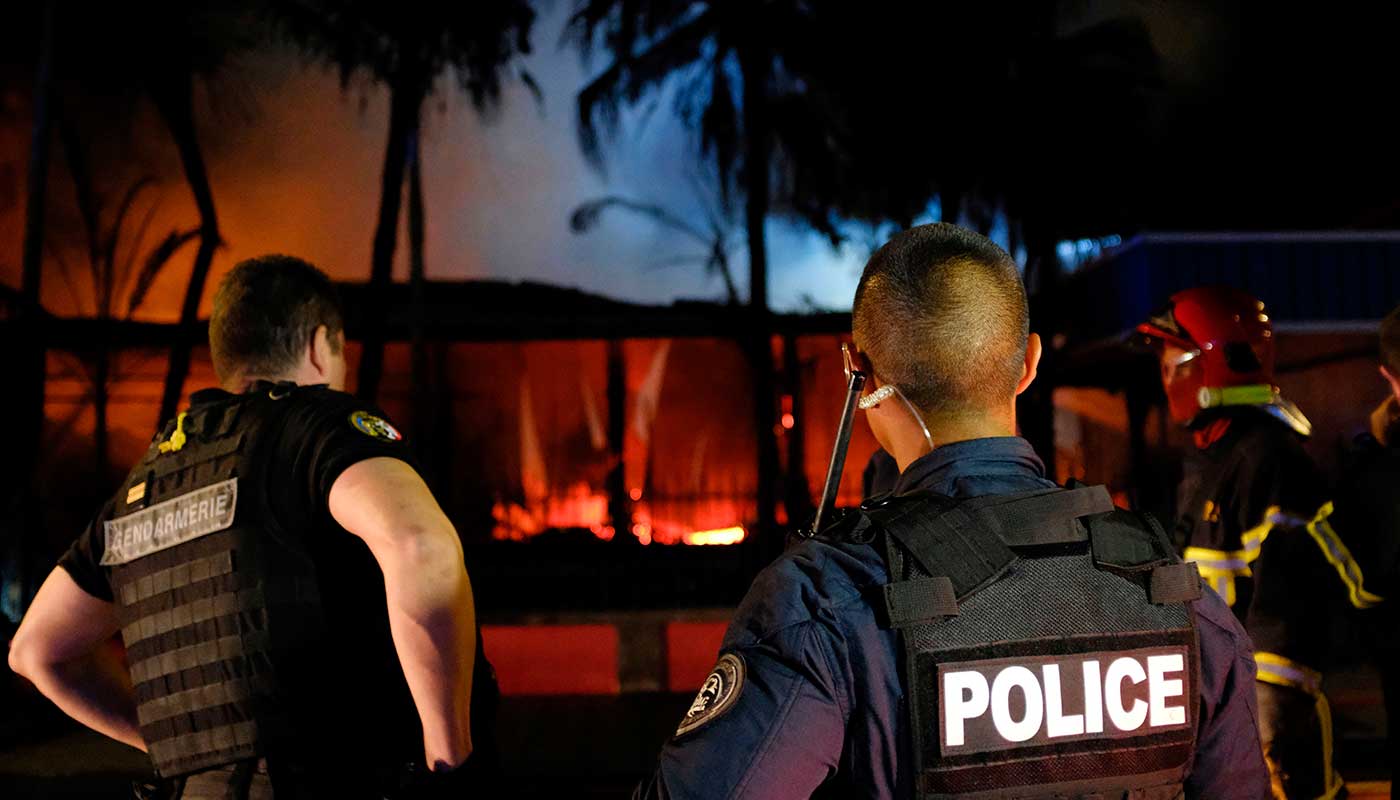New Caledonia rejects independence from France
But pro-independence leaders say tight result indicates the country will eventually decolonise

A free daily email with the biggest news stories of the day – and the best features from TheWeek.com
You are now subscribed
Your newsletter sign-up was successful
Voters in the French Pacific territory of New Caledonia have decided not to forge ahead with plans to become an independent nation, following a narrow result in a national referendum.
The final results showed that 56.4% of voters decided to remain part of France, while 43.6% elected to leave, which the BBC reports is a “tighter result than some polls had predicted”.
The ballot for independence was promised in a 1988 deal that was designed to put an end to a spate of violent and deadly clashes between the native Kanak population, who make up 39.1% of the population, and French government authorities.
The Week
Escape your echo chamber. Get the facts behind the news, plus analysis from multiple perspectives.

Sign up for The Week's Free Newsletters
From our morning news briefing to a weekly Good News Newsletter, get the best of The Week delivered directly to your inbox.
From our morning news briefing to a weekly Good News Newsletter, get the best of The Week delivered directly to your inbox.
Three ballots were promised as part of the deal – two more votes are able to be held between now and 2022, with pro-independence leaders claiming that the close result is a positive indication that New Caledonia will join Djibouti and Vanuatu in decolonising from France.
French President Emmanuel Macron has hailed the vote as a signal that one of France’s most remote territories, roughly halfway between Australia and Fiji, still has faith in governance from Europe.
“The majority of Caledonians have chosen France: it's a sign of confidence in the French republic, in its future and its values," Macron told France 24 when the results of the ballot were announced.
The Guardian reports that Macron “understood the disappointment of those who wanted independence, but added that the French state would ensure liberty, equality and fraternity for everyone”.
A free daily email with the biggest news stories of the day – and the best features from TheWeek.com
The result of the referendum was not without incident, with demonstrations in the streets of the capital Noumea, where cars and several shops were set ablaze in protest of the outcome.
-
 Political cartoons for February 21
Political cartoons for February 21Cartoons Saturday’s political cartoons include consequences, secrets, and more
-
 Crisis in Cuba: a ‘golden opportunity’ for Washington?
Crisis in Cuba: a ‘golden opportunity’ for Washington?Talking Point The Trump administration is applying the pressure, and with Latin America swinging to the right, Havana is becoming more ‘politically isolated’
-
 5 thoroughly redacted cartoons about Pam Bondi protecting predators
5 thoroughly redacted cartoons about Pam Bondi protecting predatorsCartoons Artists take on the real victim, types of protection, and more
-
 A student’s death energizes the French far right
A student’s death energizes the French far rightIN THE SPOTLIGHT Reactions to the violent killing of an ultraconservative activist offer a glimpse at the culture wars roiling France ahead of next year’s elections
-
 Greenland’s capital becomes ground zero for the country’s diplomatic straits
Greenland’s capital becomes ground zero for the country’s diplomatic straitsIN THE SPOTLIGHT A flurry of new consular activity in Nuuk shows how important Greenland has become to Europeans’ anxiety about American imperialism
-
 Epstein files topple law CEO, roil UK government
Epstein files topple law CEO, roil UK governmentSpeed Read Peter Mandelson, Britain’s former ambassador to the US, is caught up in the scandal
-
 Iran and US prepare to meet after skirmishes
Iran and US prepare to meet after skirmishesSpeed Read The incident comes amid heightened tensions in the Middle East
-
 Israel retrieves final hostage’s body from Gaza
Israel retrieves final hostage’s body from GazaSpeed Read The 24-year-old police officer was killed during the initial Hamas attack
-
 China’s Xi targets top general in growing purge
China’s Xi targets top general in growing purgeSpeed Read Zhang Youxia is being investigated over ‘grave violations’ of the law
-
 Panama and Canada are negotiating over a crucial copper mine
Panama and Canada are negotiating over a crucial copper mineIn the Spotlight Panama is set to make a final decision on the mine this summer
-
 Why Greenland’s natural resources are nearly impossible to mine
Why Greenland’s natural resources are nearly impossible to mineThe Explainer The country’s natural landscape makes the task extremely difficult